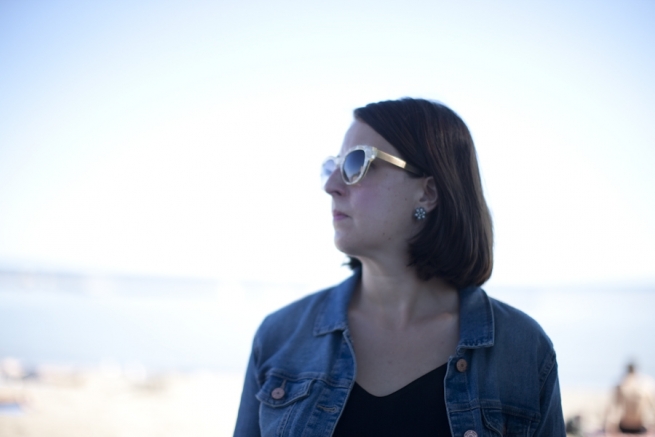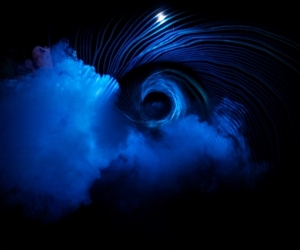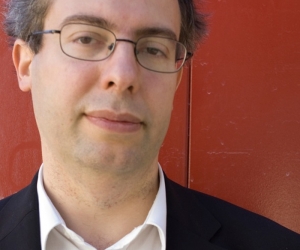
For many composers, a work in progress comes with strings attached—no pun intended. There are arts councils and concert presenters to satisfy, musicians to liaise with, premiere dates that draw ever closer. Deadlines, of course, can get the juices flowing, and creative constraints (such as writing for a specific ensemble) can certainly focus the mind.
But there’s something to be said for, say, wandering through flora-festooned gardens and meadows with a camera at the ready, exploring the architectural nooks and crannies of towns you’ve never visited before, and generally being free of anyone’s expectations—including your own.
For Emilie LeBel, Field Notes has been just such a project.
Until quite recently, though, the Toronto-based composer has been a very busy bee. After earning an honours diploma in audio engineering and music production, a specialized honours BFA in music, and a master’s degree in composition, LeBel received a doctorate in composition from the University of Toronto in 2013. Along the way, there have been commissions, workshops, and residencies galore. She won the Canadian Music Centre’s 2012 Toronto Emerging Composer Award. Since 2011, LeBel has been active in the Canadian Electroacoustic Community. She has served, and continues to work, as a teacher for a wide range of arts-education organizations.
“This year has been about slowing down,” LeBel told me in July 2014, just a week before setting out on a camping trip. I was surprised, I admit, to hear this from someone who seems to have so much on the go. Then again, she was gearing up to leave the city and its distractions.
Field Notes—a work involving a six-piece chamber ensemble, live electronics, video, and photographic installation—took root at the beginning of 2014, just as LeBel was embarking on a six-month “musical adventure,” as she calls it, of grant-supported private study with composers Michael Finnissy (in the U.K.), Christopher Butterfield (in Victoria), and Juliet Palmer (Toronto).
LeBel explains her particular take on the art of slowing down.
[This 2014 conversation has been condensed and edited.]
MW: I assumed Field Notes was directly related to your recent travel-study journeys. But that’s not the case?
EMILIE LEBEL: I was working on three pieces while I was travelling and studying. They are what I worked on with my three mentors, and I finished them during that time. Field Notes was also gaining energy: I was noting ideas in my journals, taking photographs and video, and collecting field notes that would inform the creation of an installation. Whereas previous projects haven’t had such a long gestation period, with this one, I enjoyed a slower process of collecting things that are informing the colours and textures of what I am doing musically.
The three pieces I worked on during this time were experiences through which I learned new skills, took some risks, and figured out new ideas. My three mentors did not see or inform Field Notes directly, yet they significantly impacted it, because of all the things we talked about. I call that time a marinating stage, because ideas were gaining momentum. Memory is an ongoing theme in my work, so after six months of documenting all this stuff, my memory of those experiences becomes part of the creation stage.
MW: The piece is written for a chamber ensemble of flute, violin, cello, accordion, piano, and percussion, and will also include live electronics and visual components. That’s an interesting configuration.
EB: Electronics are creeping back into my work, but are being used in different ways. Electronics used to play a very central role in some of my earlier pieces, but now they are just another instrument, part of the timbre and texture but not a defining element. The colour possibilities of that group of instruments are pretty amazing. I love the sound of accordion with stringed instruments: there is something so wonderful about those timbres together. I am enjoying the process of discovering things about an instrument which weren’t obvious to me before.
MW: How are you envisioning the piece’s final form?
EB: One of the things I wanted to do this year was to write something longer in length—most of the commissions and chamber music I write tend to run eight to twelve minutes, which fits well onto a program and is what arts councils tend to fund. With Field Notes, because its mine, I don’t have to worry about it fitting into a concert program.
MW: So how will it eventually be presented?
EB: Once the piece is done, I’m going to produce it myself. I have performers in mind. But there’s much more work to do before that happens. I am still figuring out some technical things. In addition to still images, there is video in this piece. While I’ll be finishing the video work after the music part of the piece, I am not privileging the music over the video, so I need to take the time to find a way into that.
Emilie LeBel's works the lovely dirt of public space (2018) and The necessary thousand permutations of a question (2014) will be performed at the Victory Social Club (Toronto) on Saturday January 25, 2020, for the second instalment of FAWN's Convergence Theory, a new electronic music series. Adam Scime and Xuan Ye are also on the program.


